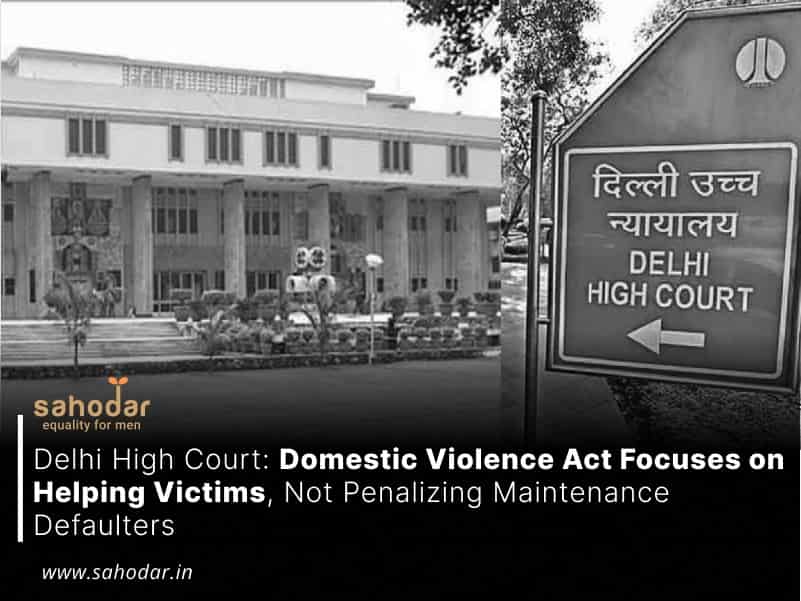The Court has held that persons cannot be summoned by a trial court under Section 31 of the DV Act for a failure to pay maintenance ordered by the court under Section 20 of the Act.
The Delhi High Court has elucidated that the principal objective of maintenance proceedings pursuant to the Protection of Women from Domestic Violence Act (DV Act) is directed towards ameliorating the plight of victims of domestic violence, rather than being primarily punitive in nature vis-à-vis defaulters in payment. This elucidation was rendered concomitant to a judicial pronouncement stipulating that individuals cannot be judicially summoned under Section 31 of the DV Act for non-compliance with maintenance orders mandated under Section 20 of the Act.
Justice Swarana Kanta Sharma expounded upon the distinction, articulating that Section 31 is expressly concerned with infractions of “protection orders,” which diverges from the pecuniary aspect inherent in the maintenance regimen delineated in Section 20 of the Act.
“Court is of the view that a person cannot be summoned (by a criminal court) under Section 31 of PWDV Act for non-compliance of monetary order such as order for payment of maintenance passed under Section 20 of PWDV Act,” the Court proceeded to conclude.
Significantly, the judge additionally noted that the primary objective of the DV Act is not to immediately incarcerate offenders for a failure to fulfill maintenance obligations.
“The aim of the Act was, therefore, to provide for protection, rehabilitation and upliftment of victims of domestic violence, in contrast to sending the aggressor to prisons. In other words, the purpose behind enforcement of monetary orders would be to provide monetary sustenance to the victim, and not the incarceration of the aggressor. The idea is not to immediately initiate criminal proceedings against the aggressor i.e. respondent as defined in the Act for non-payment of maintenance and to send such person to prison forthwith,“ the order stated.Top of Form
The court expounded upon the specific legal remedies available within the framework of the Domestic Violence (DV) Act to address instances of non-compliance with monetary relief or maintenance obligations. Notably, individuals with regular income or outstanding debts may seek redress by recourse to their employer or debtor, in accordance with the court’s delineation. In scenarios falling outside these circumstances, aggrieved parties are expected to avail themselves of remedies delineated in the Code of Criminal Procedure (CrPC).
Consequently, the court annulled a March 2019 directive from an additional sessions judge summoning a petitioner under Section 31(1) of the DV Act for purportedly failing to fulfill interim maintenance obligations to his estranged wife. The petitioner, previously entangled in a dowry harassment case filed by his wife in 2016, was subsequently mandated to provide financial support to his wife and daughter under the DV Act. Subsequently, the wife alleged non-compliance and sought legal recourse.
The petitioner contested the summons before the Delhi High Court, asserting that Section 31 was inapplicable to grievances concerning non-compliance with orders for interim maintenance under Section 20 of the DV Act. Emphasizing that Section 31 exclusively pertains to breaches of protection orders and not violations related to monetary reliefs, the petitioner articulated his legal argument.
In contrast, the wife maintained the validity of the summoning order, underscoring the petitioner’s non-compliance with maintenance orders. Nevertheless, the High Court aligned with the petitioner’s legal position, affirming that non-compliance with orders for monetary relief falls within the purview of Section 20(6) of the DV Act and relevant CrPC provisions. The Court elucidated that Section 31 exclusively addresses breaches of protection orders and cannot be construed to cover violations linked to maintenance or monetary relief orders. Consequently, the High Court allowed the petitioner’s plea, thereby nullifying the trial court’s order summoning him under Section 31 of the DV Act.

